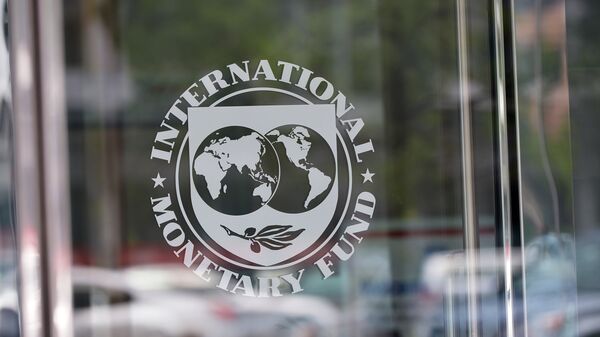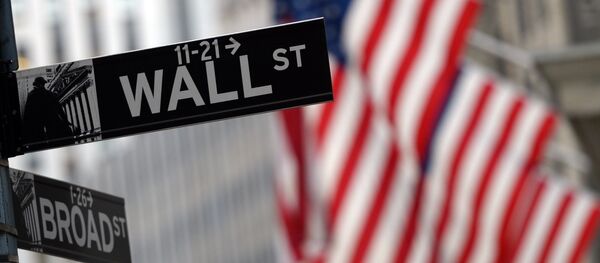Kristian Rouz — The International Monetary Fund, a Washington-based global lender, has recommended that the US reserve bank focus on inflation figures, allowing the core prices index to exceed the Fed's 2 percent target before embarking on any further hikes in base interest rates. According to a full IMF report, published Tuesday, the Fed rejected such an idea, allegedly adamant about implementing at least one 0.25 percent hike this year at any cost.
In late June, Deutsche Bank notoriously failed the Fed's stress-test, contributing to rising volatility in the US banking sector. Meanwhile, FX rate risks have rendered US investment banking and wealth management less profitable, resulting in layoffs in a number of major banks, including Goldman Sachs and Bank of America.
Subsequently, citing the negative economic consequences of corporate despair, the IMF recommended that the Fed allow "some modest, temporary overshooting" of its 2 percent inflation target before raising US borrowing costs higher. Otherwise, the Fund noted, a preemptive hike in rates could result in price stagnation, causing growth to effectively grind to a halt, and compelling the Fed to reverse its tightening cycle to stave off recession.
The Fed responded by saying they have "no intention to engineer an overshoot" as they are not convinced such a measure is deemed necessary. Commenting further, the Fed said they "were concerned over the risks of de-anchoring inflation expectations and eroding monetary policy credibility."
Therefore, allowing greater inflation before the potentially price-oppressing rate hike would seem prudent; it would stave off deflation risks and support at least mediocre growth in the near-to-mid-term.
"Because of uncertainty about the economic fallout, risks to the outlook appear now as skewed to the downside," the IMF said. "Should downside risks materialize, interest rate increases should be delayed in line with a data-dependent approach."
The US authorities' response reflects their policy thinking, which is rooted in a different paradigm: it puts jobs and price stability first, in accordance with the concept of demand-side economics.
"Aiming to overshoot the medium-term target would create the risk of being behind the curve and potentially being faced with a need to raise rates more quickly especially if the labor market tightening led to a faster increase in inflation than seen until now," the US officials said, as outlined in the IMF report. "This could be disruptive and undermine the achievement of the Federal Reserve's mandates of maximum employment and stable prices."
The IMF names #Brexit uncertainty as a key risk to the global economic outlook pic.twitter.com/GK98Ras3EW
— IMF (@IMFNews) 30 June 2016
Among other concerns, Brexit has thus far not battered the US economy significantly, the IMF said. However, more potential spillover might follow in the near-term. Overall, the US economy is in good shape, the Fund noted, and is struggling with some structural shortcomings that potentially might be exacerbated, stirring greater risks.



